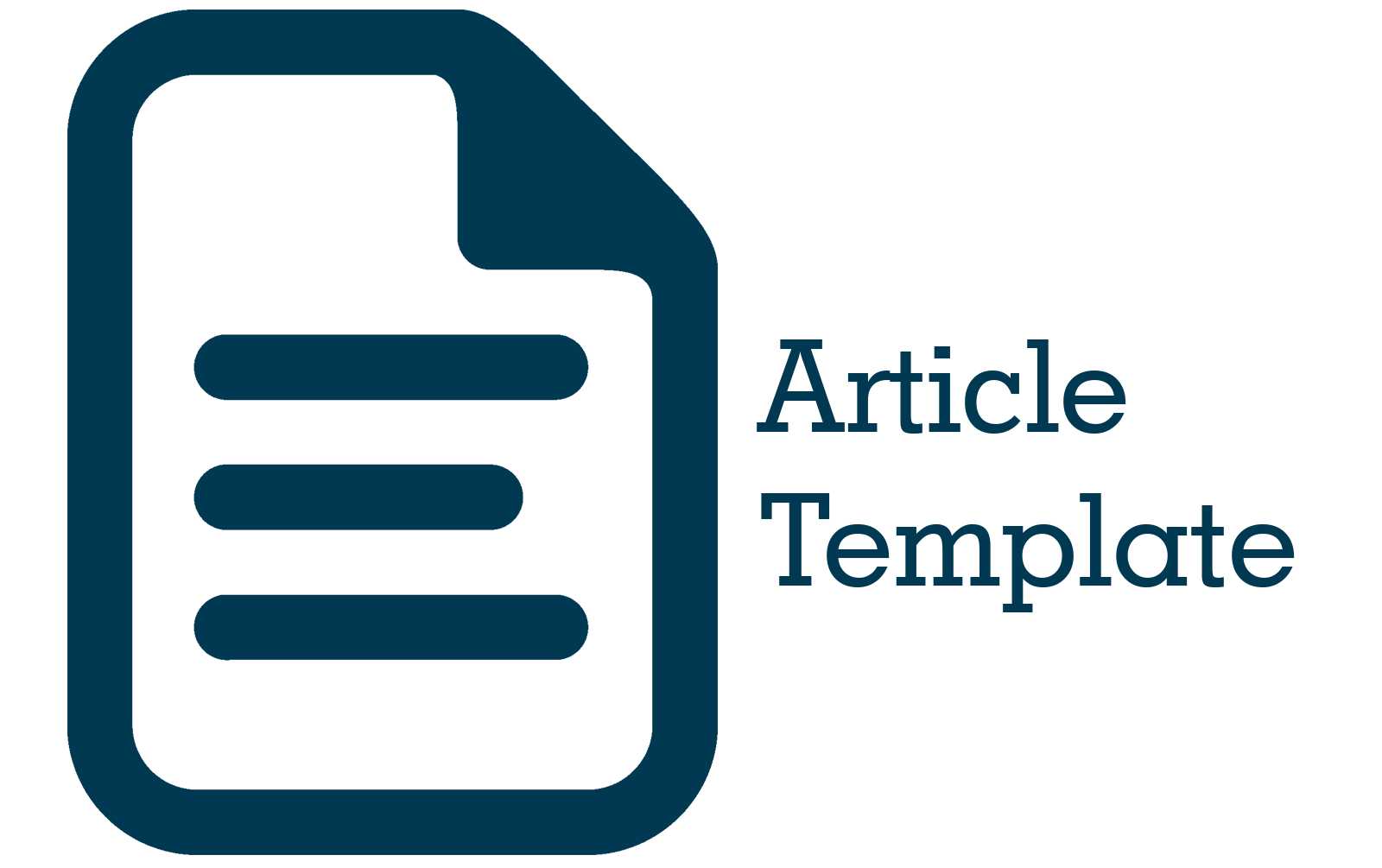Pemodelan Multiscale Geographically Weighted Regression (MGWR) pada Tingkat Pengangguran Terbuka di Provinsi Jawa Barat Tahun 2022
Abstract
Abstract. Spatial analysis with Multiscale Geographically Weighted Regression (MGWR) method is a development of the Geographically Weighted Regression (GWR) method. This method is used when data has spatial heterogeneity, spatial autocorrelation, and multicollinearity. MGWR allows for different spatial scales and allows the neighborhood around each variable to vary. These differences are accommodated through different optimum bandwidth values for each covariate. The MGWR method is applied to data on the open unemployment rate (TPT) in West Java Province in 2022 because West Java is the province with the highest TPT value in that year. MGWR parameter estimation is performed using the Backfitting Algorithm method by reformulating GWR as Generalized Additive Models (GAMs). The weighting function used is a fixed Gaussian kernel function because the farthest region still has a weight even though it is not as large as the weight of the closest region. The optimum bandwidth search is by minimizing the Akaike Information Criterion Corrected (AICc) value using golden section search method. Based on the analysis, 27 MGWR local models are produced for each observation area. There are differences in the independent variables that affect TPT for each observation area and are divided into four groups. The resulting MGWR model proved to be the best model when compared to the GWR model based on the highest adjusted R2 value and the lowest AICc value.
Abstrak. Analisis spasial dengan metode Multiscale Geographically Weighted Regression (MGWR) merupakan pengembangan dari metode Geographically Weighted Regression (GWR). Metode ini digunakan ketika data memiliki heterogenitas spasial, autokorelasi spasial, dan adanya multikolinearitas. MGWR mengizinkan skala spasial yang berbeda dan memungkinkan lingkungan di sekitar setiap variabel bervariasi. Perbedaan tersebut diakomodasi melalui nilai bandwidth optimum yang berbeda-beda untuk setiap kovariat. Metode MGWR diterapkan pada data tingkat pengangguran terbuka (TPT) di Provinsi Jawa Barat tahun 2022 karena Jawa Barat menjadi provinsi dengan nilai TPT tertinggi pada tahun tersebut. Estimasi parameter MGWR dilakukan dengan menggunakan metode Backfitting Algorithm dengan memformulasi ulang GWR sebagai Generalized Additive Models (GAMs). Fungsi pembobot yang digunakan adalah fungsi kernel fixed gaussian karena wilayah terjauh tetap memiliki bobot walaupun tidak sebesar bobot wilayah terdekat. Pencarian bandwidth optimum dilakukan dengan meminimumkan nilai Akaike Information Criterion Corrected (AICc) menggunakan metode golden section search. Berdasarkan analisis yang telah dilakukan maka dihasilkan sebanyak 27 model MGWR yang bersifat lokal untuk setiap wilayah pengamatannya. Terdapat perbedaan variabel bebas yang berpengaruh terhadap TPT untuk setiap wilayah pengamatan dan terbagi menjadi empat kelompok. Model MGWR yang dihasilkan terbukti menjadi model terbaik jika dibandingkan dengan model GWR berdasarkan nilai adjusted R2 yang tertinggi dan nilai AICc terendah.
References
ArcGIS Pro. (n.d.). How Multiscale Geographically Weighted Regression (MGWR) Works. Retrieved May 25, 2024, from https://pro.arcgis.com/en/pro-app/3.1/tool-reference/spatial-statistics/how-multiscale-geographically-weighted-regression-mgwr-works.htm
Ardhani, R., Herrhyanto, N., Fitriani, D., Program, A., Matematika, S., Matematika, P., Ilmu, D., & Alam, P. (2023). Multiscale Geographically Weighted Regression (MGWR) untuk Memodelkan Nilai Angka Buta Huruf di Provinsi Sumatera Selatan Tahun 2021.
Arsyad, L. (2015). Ekonomi Pembangunan (5th ed.). UPP STIM YKPN.
Badan Pusat Statistik. (2023). Tingkat Pengangguran Terbuka (TPT) dan Tingkat Partisipasi Angkatan Kerja (TPAK) Menurut Provinsi, 2022. https://bit.ly/BPSTPT2022
Caraka, R. E., & Hasbi, Y. (2017). Geographically Weighted Regression (GWR) Sebuah Pendekatan Regresi Geografis. Mobius.
Damayanti, A. H., & Agustin Nuriani Sirodj, D. (2022). Pemodelan Geographically Weighted Regression dengan Fungsi Pembobot Fixed Gaussian Kernel untuk Kasus Tingkat Partisipasi Angkatan Kerja Wanita di Provinsi Aceh. Bandung Conference Series: Statistics, 2(2), 291–298. https://doi.org/10.29313/bcss.v2i2.4071
Dima, A., Kleden, M. A., & Atti, A. (2023). Analisis Faktor-Faktor yang Mempengaruhi Prestasi Siswa Menggunakan Metode Structural Equation Modeling (SEM). Statistika, 23(2), 132–146. https://doi.org/10.29313/statistika.v23i2.2642
Fotheringham, A. S., Oshan, T. M., & Li, Z. (2024). Multiscale Geographically Weighted Regression-Theory and Practice. CRC Press.
Hananti, H., Jaya, I. G. N. M., & Irlandia Ginanjar. (2023). Pemodelan Kasus Gizi Buruk Balita di Indonesia Menggunakan Panel Quantile Regression Model. Statistika, 23(2), 116–122. https://doi.org/10.29313/statistika.v23i2.2025
Iyanda, A. E., Adeleke, R., Lu, Y., Osayomi, T., Adaralegbe, A., Lasode, M., Chima-Adaralegbe, N. J., & Osundina, A. M. (2020). A retrospective cross-national examination of COVID-19 outbreak in 175 countries: a multiscale geographically weighted regression analysis (January 11-June 28, 2020). Journal of Infection and Public Health, 13(10), 1438–1445. https://doi.org/10.1016/j.jiph.2020.07.006
Khoeriyah, R. Y. (2021). Regresi Terboboti Geografis Semiparametrik (RTG-S) untuk Pemodelan Indeks Pembangunan Kesehatan Masyarakat Kabupaten/Kota di Sumatera Utara. Jurnal Riset Statistika, 1(1), 43–50. https://doi.org/10.29313/jrs.v1i1.145
Satyahadewi, N., Aprizkiyandari, S., & Risky Oprasianti. (2023). Regresi Data Panel dalam Analisis Faktor-Faktor yang Mempengaruhi IPM di Kalimantan Barat. Statistika, 23(2), 123–131. https://doi.org/10.29313/statistika.v23i2.2201
Sembiring, R. (2003). Analisis Regresi. ITB Bandung.
Yu, H., Fotheringham, A. S., Li, Z., Oshan, T., Kang, W., & Wolf, L. J. (2020). Inference in Multiscale Geographically Weighted Regression. Geographical Analysis, 52(1), 87–106. https://doi.org/10.1111/gean.12189











